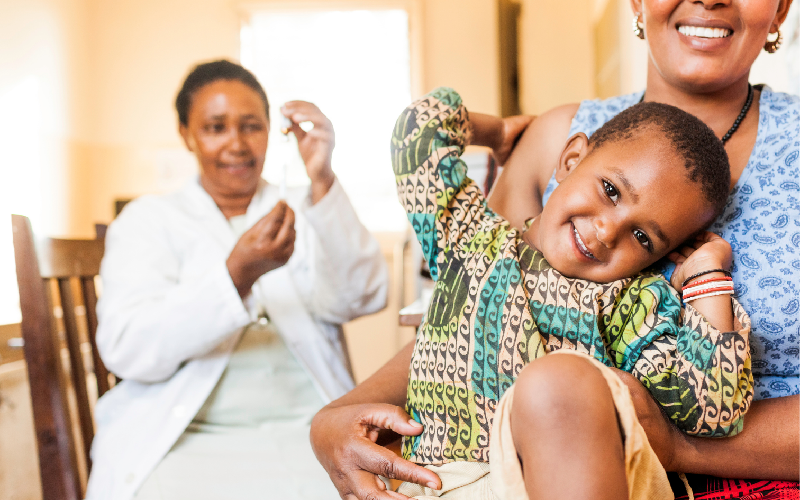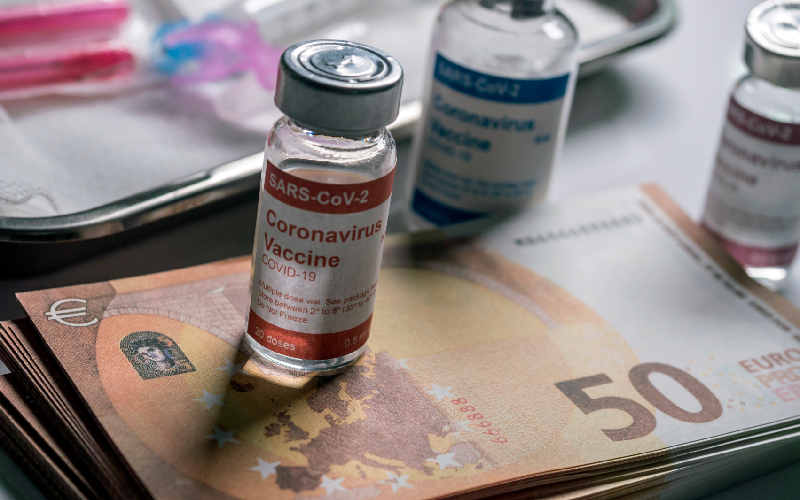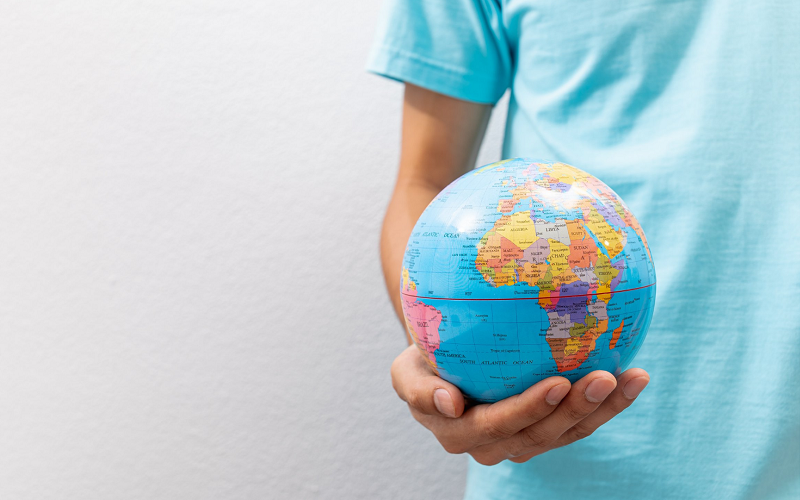
1st WHO-recommended Malaria Vaccine: A New Hope

First WHO-Recommended Malaria Vaccine: A Milestone in Global Public Health
News
Nov 30, 2021
Malaria is a life-threatening disease with a devastating impact on people’s health worldwide. Despite being preventable and treatable, malaria continues to claim more than 400,000 lives every year, underscoring the urgent need for stronger, more equitable prevention tools.
In 2019 alone, nearly 4 billion people, almost half of the world’s population, were at risk of malaria, with an estimated 229 million cases globally. The disease remains one of the world’s most persistent public health challenges.
The Global Burden of Malaria in Africa
The burden of malaria falls disproportionately on the African continent. In 2019, 94% of all malaria cases and deaths occurred in the World Health Organization (WHO) African Region.
Malaria is a leading cause of childhood illness and death in sub-Saharan Africa. Each year, more than 260,000 African children under the age of five die from malaria, making it one of the deadliest threats to child survival in the region.
The WHO’s Vision for a World Free of Malaria
The WHO’s vision is clear: a world free of malaria. To accelerate progress toward this goal, the WHO introduced the Global Technical Strategy for Malaria 2016–2030, built around three core pillars:
-
Ensuring universal access to malaria prevention, diagnosis, and treatment
-
Accelerating efforts toward malaria elimination and attainment of malaria-free status
-
Transforming malaria surveillance into a core public health intervention
These pillars are supported by two essential elements: harnessing innovation through research and strengthening enabling health system environments. The WHO urges countries to adopt and expand the implementation of this strategy to prevent malaria deaths and advance elimination.
A Breakthrough Moment for the Malaria Vaccine
In October 2021, the WHO reached a historic milestone by recommending RTS, S/AS01 (RTS,S) as the first malaria vaccine for widespread use among children.
The malaria vaccine is recommended for children living in areas with moderate to high transmission of Plasmodium falciparum, the deadliest malaria parasite globally and the most prevalent in Africa.
How the RTS,S Malaria Vaccine Works
The RTS,S malaria vaccine:
-
Requires a four-dose regimen
-
Is administered starting from five months of age
-
Has been shown to significantly reduce malaria cases and deadly severe malaria among young children
The WHO reports that even in real-world, high-impact childhood vaccination settings, the malaria vaccine reduces severe malaria by approximately 30%, including in areas where insecticide-treated nets are widely used and access to diagnosis and treatment is strong.
Evidence from the WHO Malaria Vaccine Pilot Program
The WHO recommendation was based on results from an ongoing WHO-coordinated pilot program, led by the Ministries of Health of Ghana, Kenya, and Malawi.
Since 2019, the program has:
-
Vaccinated more than 800,000 children
-
Demonstrated the feasibility, safety, and public health impact of the malaria vaccine when delivered through routine immunization systems
Dr. Tedros Adhanom Ghebreyesus, WHO Director-General, stated:
“Using this vaccine on top of existing tools to prevent malaria could save tens of thousands of young lives each year.”
Regulatory and Scientific Milestones
RTS,S is currently the only malaria vaccine to:
-
Complete a Phase 3 clinical trial
-
Receive a positive scientific opinion from the European Medicines Agency
In October 2021, the WHO shared detailed data from the pilot program and outlined the next steps to integrate the malaria vaccine into broader malaria control strategies worldwide.
The WFPHA Position on the Malaria Vaccine
The World Federation of Public Health Associations (WFPHA), through its International Immunization Policy Taskforce, strongly applauds global efforts to control and eliminate malaria.
The WFPHA Commends:
-
The WHO for its leadership in malaria elimination
-
The Ministries of Health in Ghana, Kenya, and Malawi for their commitment to the malaria vaccine pilot program
-
Gavi, the Vaccine Alliance; the Global Fund to Fight AIDS, Tuberculosis, and Malaria; and Unitaid for financing the pilot initiative
The WFPHA Recommendations for Global Malaria Vaccine Rollout
To ensure the malaria vaccine reaches those who need it most, the WFPHA recommends:
-
Immediate use of the malaria vaccine once fully approved by the WHO scientific bodies
-
Development of targeted campaigns to promote vaccine uptake
-
Sustained financing to ensure equitable access and affordability worldwide
-
Robust AEFI (Adverse Events Following Immunization) surveillance as distribution scales
-
Ongoing funding aligned with Universal Health Coverage principles
-
Continued research and development of more cost-effective and efficacious malaria vaccines, including technologies emerging from the COVID-19 pandemic
-
Prioritization of populations in countries with the least resources
A New Hope in the Fight Against Malaria
The first WHO-recommended malaria vaccine represents a turning point in global public health. When used alongside existing malaria prevention and treatment tools, it offers new hope for saving children’s lives, reducing inequities, and accelerating progress toward malaria elimination.
Malaria remains a preventable tragedy. The malaria vaccine is not a standalone solution, but it is a powerful, evidence-based addition to the global fight against one of humanity’s oldest and deadliest diseases.








Recent Comments